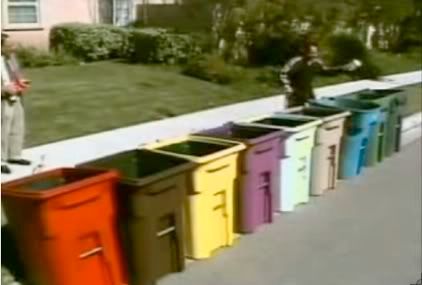It depends on the issue, really. When someone starts complaining about a need to present "the other side of the issue" when it comes to things like evolutionary theory, climate change, homosexuality and the moon landing, I have to roll my eyes. How much credibility do we give the "other side" when it's not backed by research, history, logic or the scientific method?
But anyway, there's a good site here that talks about a lot of the common anti-recycling claims and why they're pretty dubious:
http://www.edf.org/documents/611_ACF17F.htm.
And here's a site that actually debunks one of the claims made in the P&T episode:
http://www.de-fact-o.com/fact_read.php?id=62
Yes, it does depend on the issue, and that's why its bad to lump a whole bunch of disparate topics together as you have. It suggests that to question one is to question all of them.
For example, there is considerable criticism and debate on the issues surrounding human causes of climate change. In fact, the use of the term
climate change has largely become
political in that a successful campaign by environmentalists has instilled a notion that the source is human, when in fact changes in climate have always occurred over the history of the planet. They are a constant and not an exception.
Climate research has nothing to do with homosexuality or worries over moon landing hoaxes. Lumping "debates" together is not helpful.
As for picking sides, the Environmental Defence Fund is hardly a paragon of scientific neutrality. It is a political organization. The document you cite has picked its own side on the issues as well. You can quickly go through its lists of "myths" and easily see that in many instances, the stance is not well defended.
As for the web page that cites that recycling paper pollutes more than making new paper as being false, it glosses over a number of important issues. There are thousands of paper products out there, and hundreds of inks, treatments and finishes that can contribute to the effluents produced in the paper recycling process. Conversely, there are methods for making new paper that produce far less bi-products than older methods. But then again, it depends on the paper being produced. Also, it must be noted that paper is not eternally recyclable. There will always be new paper production.
With respect to recycling, the reuse of metals has had a long and successful history. That being said, there is nothing wrong with examining the claims made for or against other types of recycling. Maybe the present approach is not the best approach with respect to certain materials. Also, there is nothing wrong with the approach of designing and using materials in the production of goods that can be easily recycled for later uses. If one really wants recycling to be a success, that is always a valid first step.





